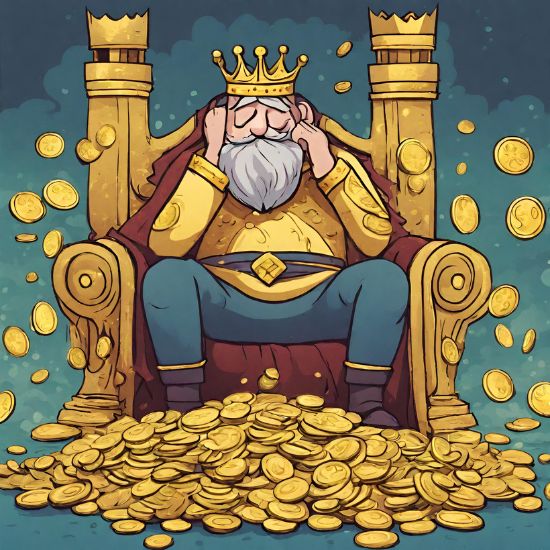Introduction
The meaning of a “hopeless romantic” captivates our imagination, embodying a fervent belief in love’s magic and the charm of timeless romance.
Are you a hopeless romantic?
Do you dream of love with a capital “L,” find yourself sighing at romantic comedies, and believe that destiny has a fairytale encounter in store for you?
You’re not alone. In fact, being an incurable romantic is far from being a flaw; it can be a precious resource for living a richer and more fulfilling life.
Many individuals aspire to find a partner with this attitude. While logic and rationality can help avoid trouble, as the saying goes, “the heart wants what it wants.” However, living in a world where mistakes have consequences complicates matters. Despite the challenges, embracing one’s romantic nature can lead to deep and meaningful connections with others. It’s essential to strike a balance between being open to the magic of love and maintaining a realistic understanding of relationships.
In this post, we delve into the essence of the concept, examining the defining characteristics of these people, the challenges they face, and the profound beauty inherent in their approach to love and relationships.
What Is A Hopeless Romantic?
In simple terms, it’s about believing in true and pure love, one that overcomes adversities and lasts forever. A person with such inclination tends to idealize love and relationships, seeing their partner as a perfect being and nurturing romantic hopes and dreams.
He is characterized by an unwavering belief in the transformative power of love. They are individuals who embrace the ideals of romance with fervor, envisioning grand gestures and deep connections as the cornerstones of their relationships. Their outlook on love is often imbued with notions of soulmates, love at first sight, and the pursuit of eternal happiness.
The problem arises when the partner takes advantage of this situation for personal gain. This could lead the unfaithful partner to justify other extramarital relationships because they always feel adored and accepted by the other. When there is no balance, the relationship suffers, and idealizing a person is not advisable.
Relationships, Passion, and Idealism
Hopeless romantics approach relationships with passion and idealism, guided by a desire for profound emotional connections. They are the architects of romantic gestures, weaving enchanting narratives of love through handwritten letters, elaborate dates, and heartfelt expressions of affection. Emotionally attuned, they wear their hearts on their sleeves, unafraid to express their deepest sentiments in pursuit of genuine intimacy.
And if I’m not a hopeless romantic?
On the other hand, not living love with passion and idealism can have negative effects on one’s romantic life. People who do not believe in true love tend to settle for mediocre relationships, live in fear of being hurt, and not fully open up to their partner.
Let’s see the advantages of adopting one behavior or the other, analyzing with the head, and setting aside the heart for a moment.
Why is being a hopeless romantic an advantage?
It makes life more beautiful and rich in emotions. Love is a powerful feeling that can bring color to our lives and make it more meaningful. It is a complex and multifaceted emotion that permeates our existence, tinting it with vibrant and deep nuances. It’s not just about romantic feelings towards a partner, but a force capable of influencing our mental, physical, and social well-being in surprising ways.
What does science say?
Positive effects on mood: Falling in love and experiencing a fulfilling relationship can lead to increased happiness, joy, and optimism. A 2017 study conducted by the University of Berkeley found that people in relationships have higher levels of cortisol, a hormone associated with well-being, and oxytocin, the love hormone.
And not only that!
Improvement in physical health: Love can also have a positive impact on our physical health. A 2018 study by Carnegie Mellon University showed that married people have a lower risk of mortality compared to single. Furthermore, love can help reduce stress, improve sleep quality, and strengthen the immune system.
The Trials of the Romantic Soul
Despite all this great news and these people’s unwavering belief in love’s power, hopeless romantics encounter unique challenges in navigating the realities of modern relationships. Their idealized perceptions of love often collide with the “complexities” of contemporary digital dating dynamics (almost like fast food where you can order a date with a double tap), leading to moments of disillusionment, confusion, and heartache. Vulnerable to disappointment, they grapple with the contrast between their ideals and the pragmatism required to sustain lasting connections.
The Beauty of Romanticism
Yet, amidst the trials they face, they find profound beauty in their approach to love. Embracing their nature allows them to cultivate deep and meaningful connections with others, transcending the boundaries of time and circumstance. By striking a balance between idealism and realism, they create moments of exquisite beauty and genuine intimacy that enrich their lives.
A sense of belonging and connection
Love allows us to feel part of something greater than ourselves, creating a sense of belonging and connection with our partner, family, and community.
A 2020 study from the University of Chicago highlighted how people who feel socially connected have a lower risk of depression and anxiety.
Love and altruism: Love can drive us to acts of altruism and generosity, promoting well-being not only for ourselves but also for those around us.
A 2019 study from Harvard University showed that people who donate their time or money to others tend to be happier and healthier. Love is a powerful force that can enrich our lives in many ways.
Science confirms it: love makes us happier, healthier, and more connected to others. In a world often frantic and individualistic, love represents a beacon of hope and an antidote to loneliness. It motivates us to give our best in a relationship.
If we believe in true love, we will be willing to commit to building a healthy and lasting relationship. It helps us overcome difficulties.
Love can be a source of great strength and support in difficult times. Being a hopeless romantic doesn’t mean living with your head in the clouds. It’s important to be aware that relationships require effort and hard work, but this doesn’t mean they can’t also be a source of great joy and happiness.
But it’s not all sunshine and roses.
Love also means commitment, courage, and effort for a more authentic couple’s life. Being a hopeless romantic doesn’t mean living in a fantasy world. People who believe in true love know that relationships require commitment, dedication, and sometimes even hard work.
There’s no point in hiding difficulties and not facing them. For this reason, even if you are a person with a great propensity for romanticism as a couple, precisely because you believe in this value, you will have the courage to say what you think even when it’s not in line with your partner’s thoughts.
Because authenticity pays off, especially if you care about the other person and your plans are long-term. Summarizing in a few points what we have written so far, it should be a commitment to ensure that in a relationship there is:
Open and honest communication: Dialoguing with the partner clearly and sincerely is essential for building a solid and lasting relationship.
Conflict resolution skills: Differences are inevitable in any relationship, but it’s important to handle them constructively and respectfully.
Respect is another key aspect. No speech or reason should ever compromise respect. Imagine if there were episodes of physical violence, as well as verbal. That would be proof that there is no love in that relationship. Love does good.
Understanding and mutual support: Being there for the partner in difficult times, and supporting them in their goals and dreams is a pillar of love. Yes, but that doesn’t mean indulging the other in projects that we believe are doomed to fail. Being a valid mirror saves the partner, and the relationship, from much worse trouble.
That’s why effort is also an essential element of the process: Facing challenges together: Difficulties can strengthen the couple if faced with unity and collaboration.
Compromises and sacrifices: In a healthy relationship, both partners are willing to compromise and make sacrifices for the common good.
Personal growth: Relationships test us and push us to grow as individuals.
Scientific research supports it:
2020 study, University of Toronto: Couples who invest time and effort in communication have a 30% lower risk of breakup.
2019 study, Gottman University: Couples who know how to handle conflicts constructively have more satisfying and lasting relationships.
2016 book, “The 5 Love Languages” by Gary Chapman: The different ways of expressing and receiving love can influence happiness and satisfaction in the couple.
So, if you’re a hopeless romantic, don’t be afraid to be one!
Embrace your romantic side and live love with passion and intensity.
Life is too short not to be carried away by this wonderful feeling, but at the same time remember, even if you’re an incurable romantic, love is not just a matter of feeling, but also of commitment and effort. Every relationship is unique and requires a commitment that varies from person to person.
There’s no magic formula for love, but with dedication, communication, and mutual respect, it’s possible to build a fulfilling and lasting relationship. However, the joy and happiness that a healthy relationship can bring are immense and greatly reward the efforts made.
After exploring the enigmatic world of hopeless romantic behavior and love’s dynamics and benefits, it’s time to turn the spotlight onto you.
Try the hopeless romantic quiz!
Quiz: Are You a Hopeless Romantic?
1. Do you believe in the concept of soulmates, the idea that there is one perfect person destined for you?
2. Are you drawn to classic romantic gestures such as handwritten love letters, candlelit dinners, or long walks on the beach?
3. Do you often find yourself daydreaming about love, envisioning grand gestures and fairy tale endings?
4. Do you believe in love at first sight, the notion that you can instantly connect with someone on a deep, emotional level?
5. Are you emotionally expressive, comfortable with openly sharing your feelings and affection with your partner?
6. Do you have a strong belief in the power of love to transform lives and bring about profound happiness?
7. Do you find yourself deeply moved by romantic movies, novels, or songs, often feeling a sense of longing or nostalgia?
8. Do you prioritize emotional connection and intimacy in your relationships, valuing deep conversations and shared experiences?
9. Do you tend to idealize love and relationships, sometimes overlooking the practicalities and complexities of real-life dynamics?
10. Do you believe in the concept of “happily ever after”, the idea that true love conquers all obstacles and endures through time?
Scoring
– For each “yes” answer, give yourself 1 point.
– Add up your total points to determine your result.
Interpretation
0-3 points: You may not be a hopeless romantic, preferring a more pragmatic approach to love and relationships.
4-7 points: You display some traits of a hopeless romantic, appreciating the beauty of love and romance but also valuing practicality.
8-10 points: You are likely a hopeless romantic, embracing the ideals of love with fervor and passion, and finding beauty in romantic gestures and profound connections.




